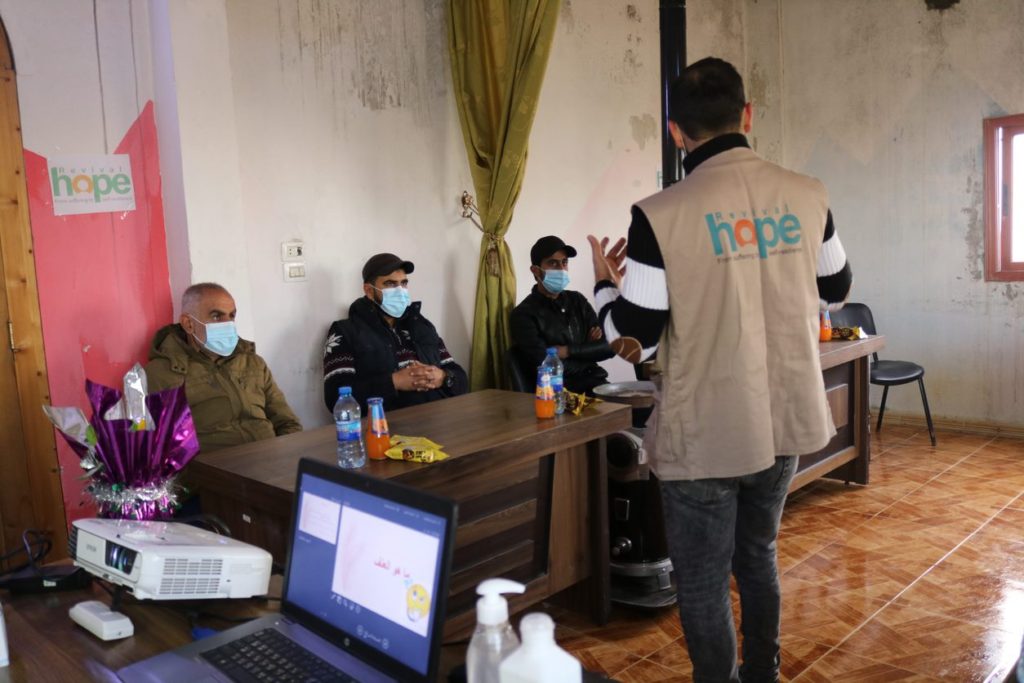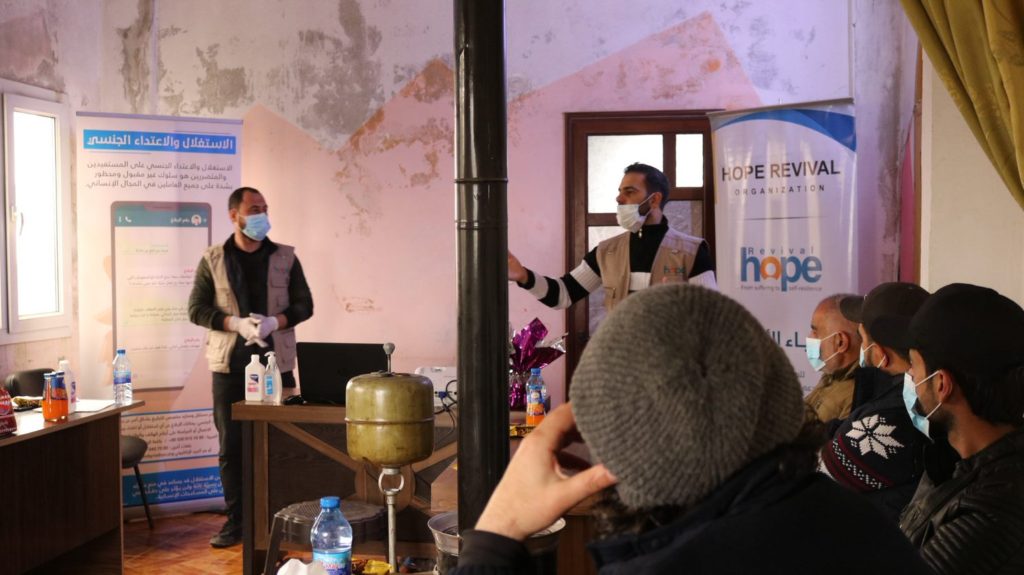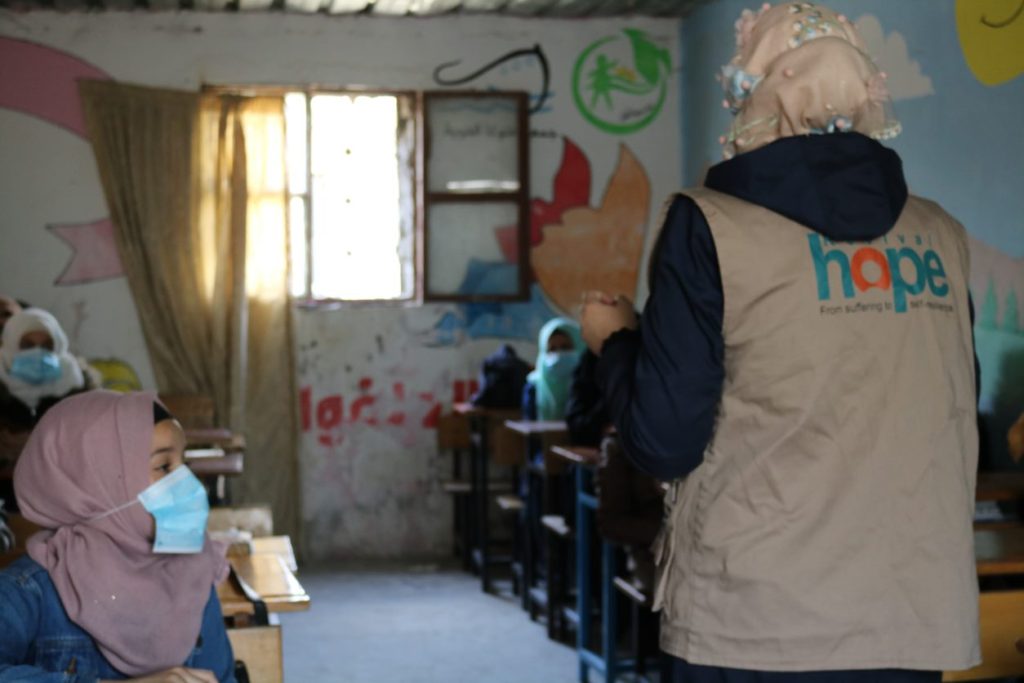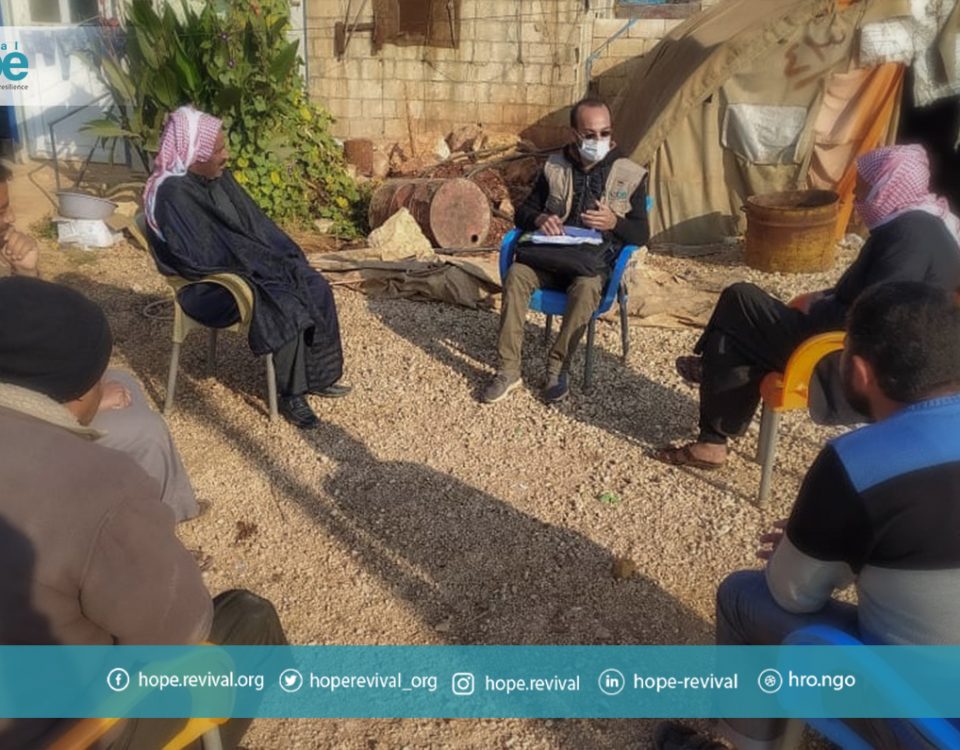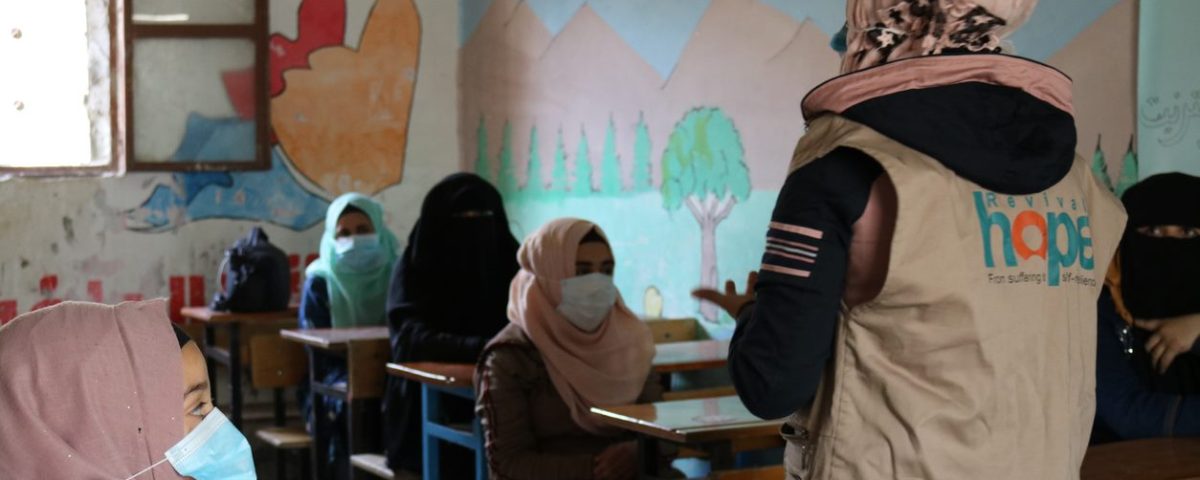
About This Project:
Place : Idled-Jisr Ash Shugur Countryside.
Duration : 12 months
Beneficiaries : 11120
Staff : 25
Main activities in “The provision of quality GBV services in northern Syria”:
-GBV response activitie.
.Quality life-saving specialized GBV sservice-
.GBV Prevention and risk mitigation –
.Awareness raising-
.Front line service providers tservicg-
.Safety Audit (GBV mainstreaming and advocacy)-
.GBV Empowerment Activities-
Life Skills.-
.-young mother club
.Vocational Training-
.economic independence (Small Grants)-
.provide safe space s for women and girls-
This project aims for the:
GBV interventions are sustained and improved through community-based and individually targeted interventions in Bdama and Janudiyeh sub-districts, Idleb governorate.
To enhance the prevention of negative social norms that underpin the normalization of GBV through capacity building activities for health facility staff on GBV guiding principles, SoPs, risk mitigation and referrals.
To contribute to the GBV prevention and mitigation through prioritizing adolescent girls programming especially for those at risk of child marriage and sexual violence to be more empowered, engaged, supported, and aware (they and their parents) on rights, resources, decision-making, and wellbeing.
to assist women and girls in achieving economic independence and thus mitigating GBV concerns and risks especially within the family.
Elderly women, and women and girls with disabilities will be considered in all project activities with the relevant guidance and coordination are ensured.
To provide a long-term capacity building intervention for Local women’s organizations with limited access to administrative or organizational capacities and also technical knowledge and capacity on GBV programming, to let them actively engage with the system, and influence decision- making or resource allocation.
To contribute to GBV prevention and risk mitigation at the community, and camps in particular, through conducting risk assessments “Safety Audits” to identify the risks and then, inform and coordinate the mitigation and response.
To help mitigate the psychosocial consequences that may adversely affect the staff while responding to emergencies and working in severely challenging settings (insecurity, economic downturn, COVID-19, displacement, etc.) through self-staff care sessions


